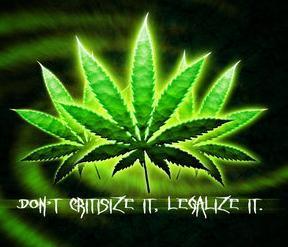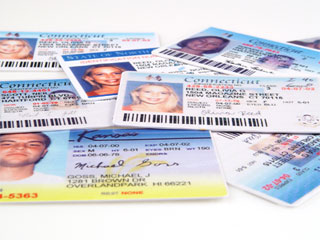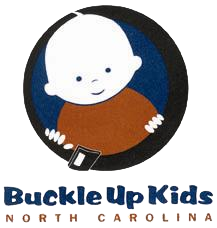Martin Luther King Jr. Day – January 20th, 2014
Thursday, January 16th, 2014 It comes time for another holiday weekend in Wilmington, NC as we celebrate a weekend full of activities and events to help celebrate Martin Luther King Jr. Day on Monday, January 20th, 2014. Thanks to the M.L.K Celebration Committee and their sponsors, these activities continue to be an important educational and community building event here in Wilmington and Southeaster North Carolina.
It comes time for another holiday weekend in Wilmington, NC as we celebrate a weekend full of activities and events to help celebrate Martin Luther King Jr. Day on Monday, January 20th, 2014. Thanks to the M.L.K Celebration Committee and their sponsors, these activities continue to be an important educational and community building event here in Wilmington and Southeaster North Carolina.
On Friday, January 17th, 2014 they will kick off the weekend with the Martin Luther King, Jr. Annual Banquet held at our Wilmington Convention Center with guest speaker N.C Supreme Court Justice Cherie Beasley.
On Saturday, the morning will be started with the N.A.A.C.P/MLK Breakfast at the Warwick Center located on UNCW’s main campus. Thereafter, the fun will continue with a Kids Fun Day at the William E. Murphy Sports Complex during the day and followed that evening with the Car & Bike Show and Soul-Food Cook-Off.
The activities will start back up on Sunday with the Ecumenical Service to be held at the Fifth Annual Baptist Church and the HBCU (Historically Black College/University) Experience at the Williston Middle School gym where you can watch St. Augustine University Marching Band go head-to-head with Elizabeth City State University Marching Band.
Then, for the finale of the weekend the annual Martin Luther King, Jr. Parade will be held in historic downtown Wilmington, NC, lineup will begin at 9:00am.
With all the activities and events that are to be held this weekend, it will be a weekend full of travelers and patrons hoping to participate in the Martin Luther King, Jr. Weekend celebration. We would like everyone to take caution while driving around town this weekend as the roads should be busy with those celebrating.
Remember, should you or someone you know receive a traffic ticket, get into a fender bender or serious accident, or receive a DUI/DWI or other citation this holiday weekend, call us at ![]() (910) 793-9000
(910) 793-9000 (910) 793-9000 .
(910) 793-9000 .
By Rachel R. Reynolds, Paralegal at Collins Law Firm

 North Carolina is fortunate to be the hot spot to many tourists because of it’s southern beaches, historical sites, and beautiful landscape. Another attraction that North Carolina is naturally endowed with are some of the greatest motorcycle rides in America that attract bikers from all over. A popular one on the Eastern side of North Carolina is the Topsail Loop ride- which travels from Jacksonville NC to Topsail NC passing over the Atlantic Intracoastal Waterway and traveling through Surf City, NC. With an increase of bikers on the roads, North Carolina decided to pass a new motorcycle safety law, to be effective October 1st, 2013, which will increase penalties for unsafe movements by drivers that threaten the property and safety of motorcyclists. This law, titled the Motorcycle Safety Act, which will change the reading of G.S. 20-154 to read as rewritten:
North Carolina is fortunate to be the hot spot to many tourists because of it’s southern beaches, historical sites, and beautiful landscape. Another attraction that North Carolina is naturally endowed with are some of the greatest motorcycle rides in America that attract bikers from all over. A popular one on the Eastern side of North Carolina is the Topsail Loop ride- which travels from Jacksonville NC to Topsail NC passing over the Atlantic Intracoastal Waterway and traveling through Surf City, NC. With an increase of bikers on the roads, North Carolina decided to pass a new motorcycle safety law, to be effective October 1st, 2013, which will increase penalties for unsafe movements by drivers that threaten the property and safety of motorcyclists. This law, titled the Motorcycle Safety Act, which will change the reading of G.S. 20-154 to read as rewritten: In just a few weeks a new law will be going into effect in North Carolina called “The Hassani N. Wesley Students’ School Bus Safety Act.” This act was passed earlier this year, but is scheduled to come into effect on December 1st, 2013. This bill will ultimately create harsher penalties for North Carolina drivers who illegally pass school buses.
In just a few weeks a new law will be going into effect in North Carolina called “The Hassani N. Wesley Students’ School Bus Safety Act.” This act was passed earlier this year, but is scheduled to come into effect on December 1st, 2013. This bill will ultimately create harsher penalties for North Carolina drivers who illegally pass school buses. On August 12, 2013, United States Attorney General Eric Holder announced to the American Bar Association’s House of Delegates in San Francisco, an initiative to curb mandatory minimum drug sentences that the nation is “coldly efficient in jailing criminals,” but it “cannot prosecute or incarcerate” into becoming a safer country. “Too many Americans go to too many prisons for far too long, and for no truly good law enforcement reason,” Holder said . The arguments about legalization of drugs in the US include health and social problems, potential tax revenue, and public safety concerns. However, this speech by our Attorney General focused on alleviating an overburdened prison system housing non-violent people convicted and sentenced to very long prison terms for peaceful drug crimes. Regarding the debate over legalization, the nation has moved from the question of “if” to the more tangible question of “how,” said Beau Kilmer, co-director of the RAND Drug Policy Research Center and co-author of “Marijuana Legalization: What Everyone Needs to Know.”
On August 12, 2013, United States Attorney General Eric Holder announced to the American Bar Association’s House of Delegates in San Francisco, an initiative to curb mandatory minimum drug sentences that the nation is “coldly efficient in jailing criminals,” but it “cannot prosecute or incarcerate” into becoming a safer country. “Too many Americans go to too many prisons for far too long, and for no truly good law enforcement reason,” Holder said . The arguments about legalization of drugs in the US include health and social problems, potential tax revenue, and public safety concerns. However, this speech by our Attorney General focused on alleviating an overburdened prison system housing non-violent people convicted and sentenced to very long prison terms for peaceful drug crimes. Regarding the debate over legalization, the nation has moved from the question of “if” to the more tangible question of “how,” said Beau Kilmer, co-director of the RAND Drug Policy Research Center and co-author of “Marijuana Legalization: What Everyone Needs to Know.” Job security is always an aspect to consider when choosing a job or career path, especially with a sloping economy. Economists are predicting that over the next fifteen years certain jobs in the medical field such as nurses and nursing assistants will become in short supply, which will increase the demand for such jobs. There are many different certifications and licenses you may receive within this targeted medical field such as becoming a registered nurse, a certified nursing assistant, a licensed practical nurse, along with many more. Persons in the health care field have a very emotional job as they work with those who are sick and ill. As they work with those, who many times cannot take care of themselves, sometimes questions and allegations arise as they help others’ loved ones.
Job security is always an aspect to consider when choosing a job or career path, especially with a sloping economy. Economists are predicting that over the next fifteen years certain jobs in the medical field such as nurses and nursing assistants will become in short supply, which will increase the demand for such jobs. There are many different certifications and licenses you may receive within this targeted medical field such as becoming a registered nurse, a certified nursing assistant, a licensed practical nurse, along with many more. Persons in the health care field have a very emotional job as they work with those who are sick and ill. As they work with those, who many times cannot take care of themselves, sometimes questions and allegations arise as they help others’ loved ones. The Wilmington Star News – the primary printed news publication in New Hanover County North Carolina reported on recent efforts by law enforcement to promote adherence to the state’s underage drinking laws.
The Wilmington Star News – the primary printed news publication in New Hanover County North Carolina reported on recent efforts by law enforcement to promote adherence to the state’s underage drinking laws. Southeastern North Carolina is an attractive area for young people to attend school either at UNCW or Cape Fear Community College. Of course, the same young people also enjoy to live, work, play, and party for which our beaches and downtown areas provide a wide array of opportunities. However, much of the nightlife requires patrons to be 21 years of age. For this reason, many youngsters either purchase fake IDs online or look to friends who are of age to use their IDs.
Southeastern North Carolina is an attractive area for young people to attend school either at UNCW or Cape Fear Community College. Of course, the same young people also enjoy to live, work, play, and party for which our beaches and downtown areas provide a wide array of opportunities. However, much of the nightlife requires patrons to be 21 years of age. For this reason, many youngsters either purchase fake IDs online or look to friends who are of age to use their IDs.
 While the Easter holiday is traditionally not a heavy traffic weekend, this spring’s decrease in gas prices and predictions of pleasant weather for this Easter weekend may impact travel. In addition, many North Carolina schools are on spring break contributing to traffic congestion.
While the Easter holiday is traditionally not a heavy traffic weekend, this spring’s decrease in gas prices and predictions of pleasant weather for this Easter weekend may impact travel. In addition, many North Carolina schools are on spring break contributing to traffic congestion. Our nation has faced some difficult economic times as of late. In North Carolina, these trying times have left over 400,000 unemployed and unsure of how they will be providing for themselves and their families. The unemployment rate for young North Carolinians (ages 20-24) more than doubled between 2007 and 2011—the second highest jump in the nation. North Carolina joined six other states in 2012 to combat this growing trend in a network which emerged as a result of the Pathways to Prosperity Report by the Harvard Graduate School of Education.
Our nation has faced some difficult economic times as of late. In North Carolina, these trying times have left over 400,000 unemployed and unsure of how they will be providing for themselves and their families. The unemployment rate for young North Carolinians (ages 20-24) more than doubled between 2007 and 2011—the second highest jump in the nation. North Carolina joined six other states in 2012 to combat this growing trend in a network which emerged as a result of the Pathways to Prosperity Report by the Harvard Graduate School of Education. Motor vehicle crashes are the leading cause of death among those age 5-34 in the U.S. More than 2.3 million drivers and passengers were treated in emergency departments as the result of being injured in motor vehicle crashes in 2009. Seat belt use and proper child restraint are the most effective ways to save lives and reduce injuries in crashes, yet millions of adults do not wear their seat belts and fail to properly secure their children on every car ride. Many of these deaths and injuries can be prevented. Placing children in age- and size-appropriate car seats and booster seats reduces serious and fatal injuries by more than half.
Motor vehicle crashes are the leading cause of death among those age 5-34 in the U.S. More than 2.3 million drivers and passengers were treated in emergency departments as the result of being injured in motor vehicle crashes in 2009. Seat belt use and proper child restraint are the most effective ways to save lives and reduce injuries in crashes, yet millions of adults do not wear their seat belts and fail to properly secure their children on every car ride. Many of these deaths and injuries can be prevented. Placing children in age- and size-appropriate car seats and booster seats reduces serious and fatal injuries by more than half.